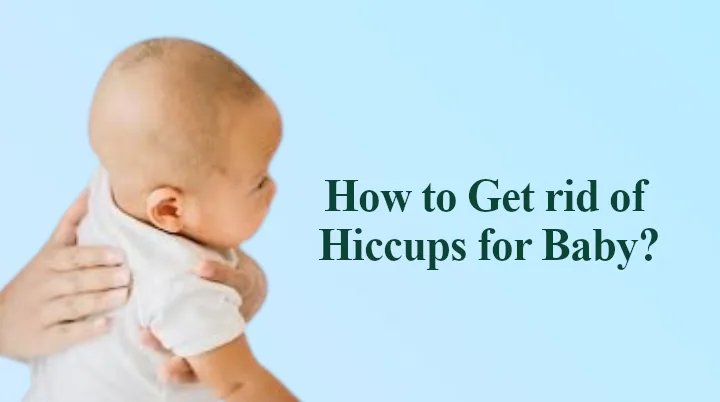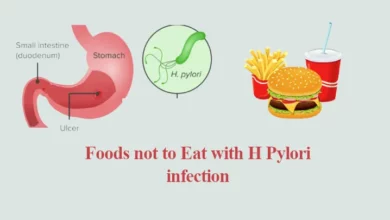How to Get rid of Hiccups for Baby?

Looking for How to get rid of hiccups for baby? Hiccups in babies can sometimes make parents worry, but they are actually quite common and usually harmless. Babies, especially newborns, often experience hiccups, just like adults. In most cases, baby hiccups are not painful or uncomfortable for them.
However, if your baby’s hiccups seem to be bothering them or if you’d like to help them stop, there are gentle methods you can try.
In this article, we’ll cover simple ways to help relieve your baby’s hiccups, understand why they happen, and know when to seek advice.
1. What Causes Hiccups in Babies?
Hiccups are caused by sudden, small spasms in the diaphragm — a muscle just below the lungs that helps with breathing. In babies, these spasms are usually harmless. Here are some common reasons why babies get hiccups:
- Swallowing air: Babies often swallow air while feeding or sucking on a pacifier. The trapped air can trigger hiccups.
- Feeding too quickly: Drinking milk or formula too quickly can sometimes lead to hiccups.
- Gastroesophageal reflux: Sometimes, hiccups can be related to mild reflux. When milk or food flows back from the baby’s stomach to the throat, it can cause hiccups.
- Excitement or overstimulation: Sometimes, when babies are excited, their diaphragm can get a little too active, leading to hiccups.
Understanding these causes can help you prevent hiccups or ease them when they do happen.
2. Tips to Help Stop Baby’s Hiccups
Here are some gentle methods that can help stop your baby’s hiccups. Try these ideas and see which ones work best for your baby.
1. Burp Your Baby Often
Burping your baby during and after feeding can help release any trapped air in their stomach. If you feed your baby milk or formula in one go, try to take short breaks to burp them. This way, you’ll avoid air getting trapped, which can sometimes prevent hiccups.
How to burp your baby:
- Hold your baby upright against your chest or shoulder.
- Gently pat their back until you hear a burp.
- You may want to repeat this process after every few minutes during feeding.
2. Adjust Your Baby’s Feeding Position
Feeding in a slightly upright position may help prevent hiccups. When babies are lying down, they might swallow more air, which can cause hiccups.
Try holding your baby at a slight angle so their head is higher than their stomach. This way, milk or formula goes down more smoothly, which reduces the chance of hiccups.
3. Try Gripe Water
Gripe water is a gentle herbal remedy that is safe for many babies. It is known to calm down the stomach and can sometimes relieve hiccups. If you decide to try gripe water, make sure to consult your pediatrician first. They can suggest a safe and suitable type of gripe water for your baby.
Note: Always check the ingredients, as some gripe waters contain alcohol or sugar, which should be avoided.
4. Offer a Pacifier
Sucking on a pacifier can sometimes help stop hiccups in babies. The sucking motion may help relax the diaphragm, which can stop the hiccup spasms. If your baby is comfortable with a pacifier, try offering it when they start hiccupping.
5. Rub Your Baby’s Back
A gentle back rub can sometimes help your baby relax and may stop the hiccups. Place your baby on their tummy on your lap and gently rub their back in a circular motion. This position and motion can sometimes release trapped air or relieve the diaphragm.
6. Wait It Out
In most cases, baby hiccups are harmless and will go away on their own. If your baby’s hiccups do not seem to bother them, you might just want to wait and let them pass. It’s often best to avoid overstimulating your baby by trying too many remedies.
How to Prevent Hiccups in Babies
While you can’t always prevent hiccups, there are a few steps you can take to reduce how often they happen. Here’s what you can try:
1. Feed Slowly and Frequently
Feeding your baby slowly and taking small breaks can help prevent them from swallowing too much air. Instead of waiting until your baby is very hungry, try feeding them more frequently in smaller amounts. This method can help prevent hiccups by reducing the chances of swallowing air.
2. Avoid Playing Right After Feeding
After feeding, avoid bouncing or playing too actively with your baby. Sudden movements after eating may lead to hiccups. Instead, try to keep your baby calm and allow their stomach to settle for a few minutes after a feeding.
3. Keep Your Baby Upright After Feeding
Holding your baby in an upright position for 10-15 minutes after feeding can help reduce hiccups. This position can help food settle in the stomach and minimize the risk of hiccups from trapped air.
When Should You Worry About Baby Hiccups?
In most cases, baby hiccups are normal and will go away on their own. However, if you notice any of the following signs, it’s a good idea to check with your pediatrician:
- Hiccups are frequent or last a long time: If your baby’s hiccups last more than 10-15 minutes and happen often, it could be a sign of an underlying issue, such as reflux.
- Hiccups are accompanied by discomfort: If your baby seems uncomfortable or cries with hiccups, it might be worth looking into why it’s happening.
- Breathing issues: If hiccups come with trouble breathing, seek medical advice immediately.
Your doctor can help identify the cause and suggest specific remedies if hiccups seem to be causing distress or happening frequently.
Myths About Baby Hiccups
Sometimes, you might hear different tips or “remedies” that aren’t actually helpful. Here are a few myths to ignore:
- Pulling on your baby’s tongue: This won’t help and could make your baby uncomfortable.
- Giving a sour or bitter taste: This is not safe for babies and should be avoided.
- Startling or scaring your baby: This can be harmful for babies and doesn’t stop hiccups.
Conclusion
Hiccups are a normal part of your baby’s growth, and they usually don’t cause any harm. Trying gentle techniques, like burping, adjusting feeding positions, or offering a pacifier, can often help ease or prevent hiccups. Remember, if your baby’s hiccups are not bothering them, there’s no need to worry or take any action. If hiccups happen too often or cause discomfort, consult your pediatrician for advice.
With patience and a few gentle techniques, you’ll likely find that you can handle your baby’s hiccups with ease.





